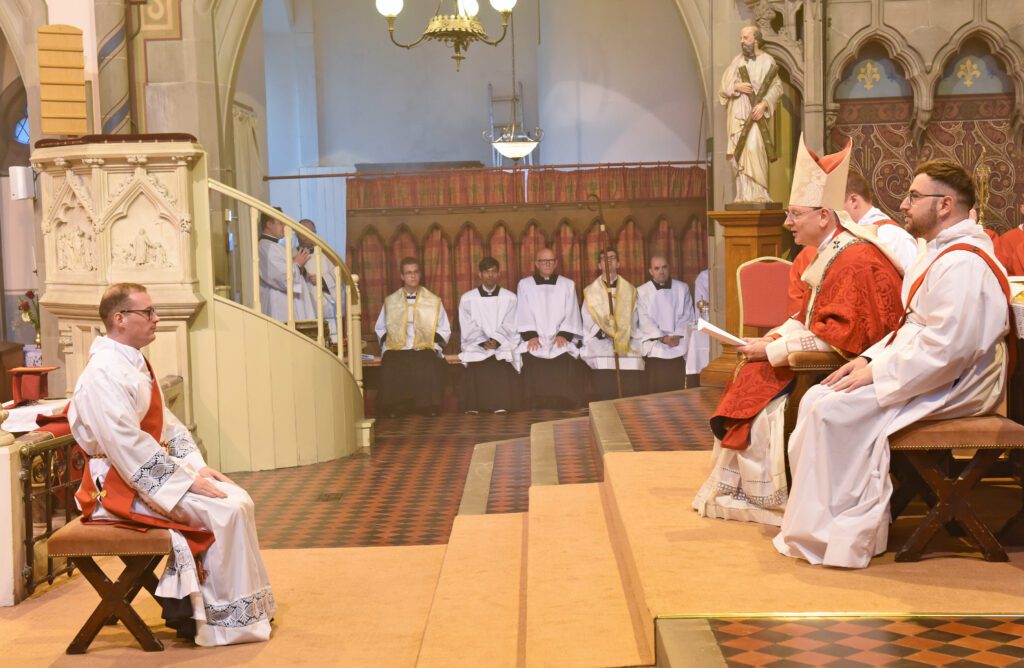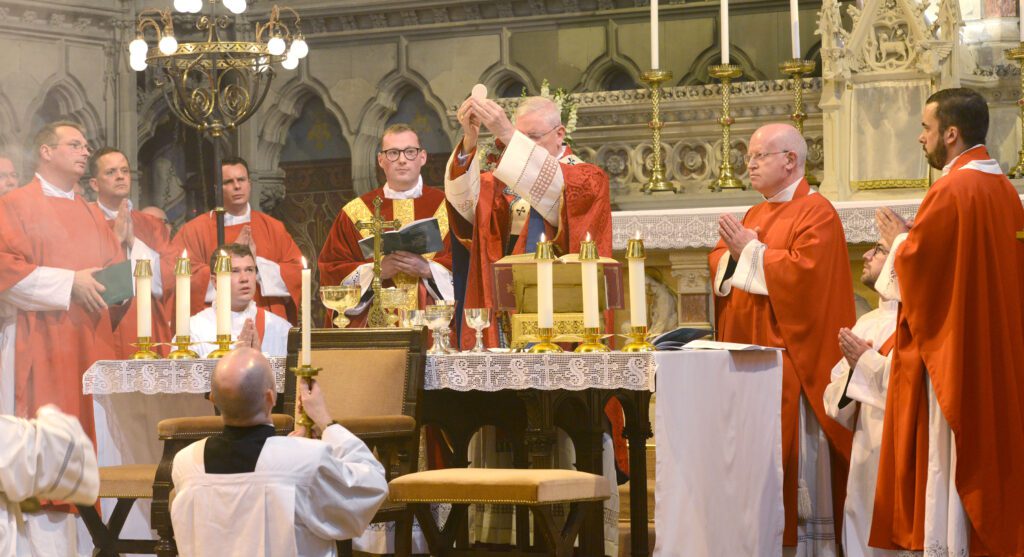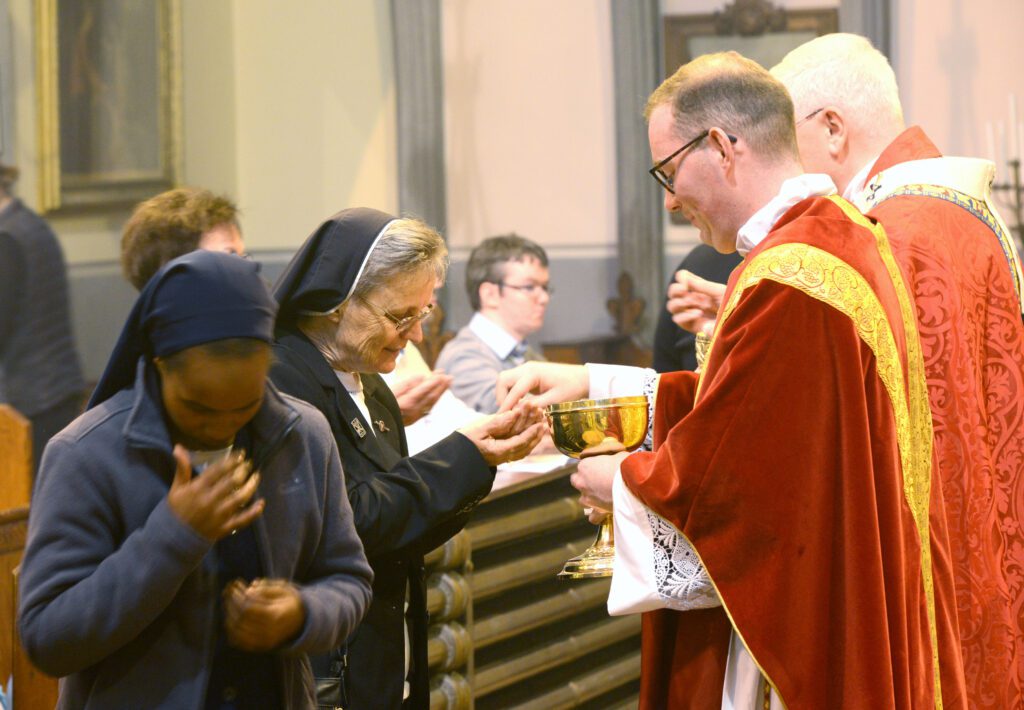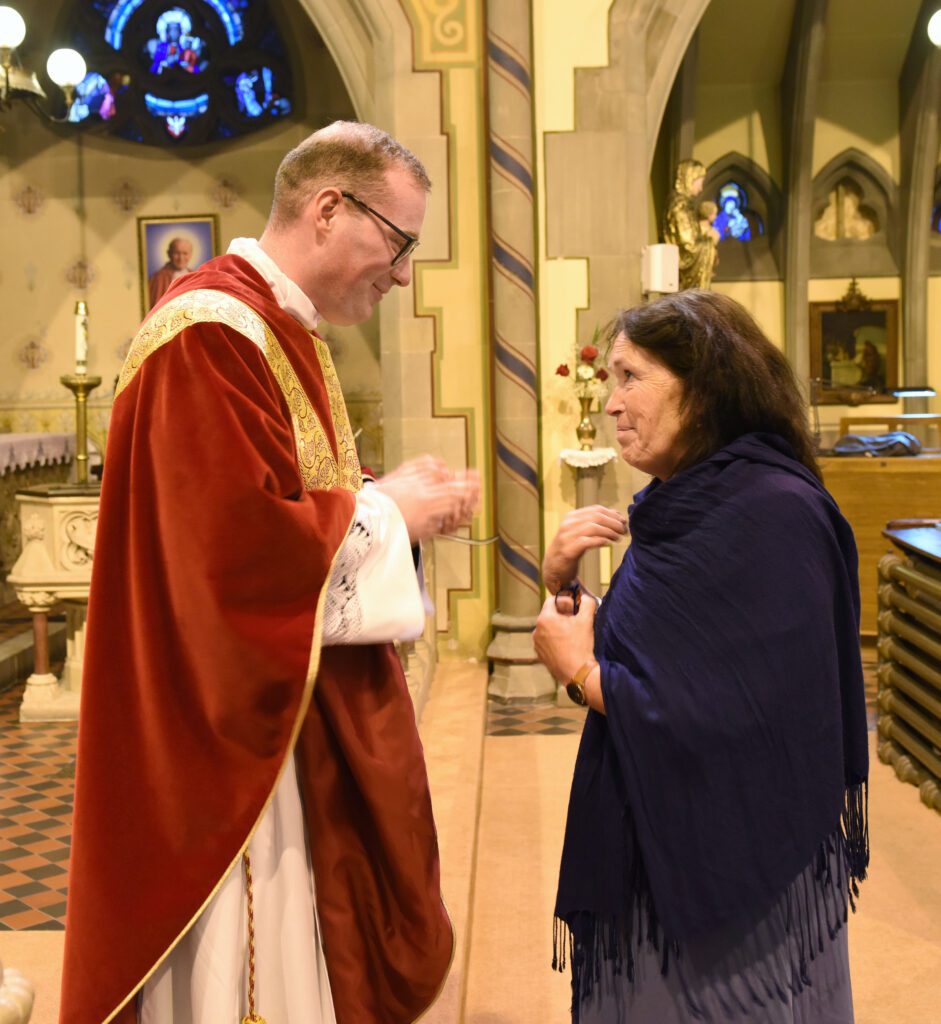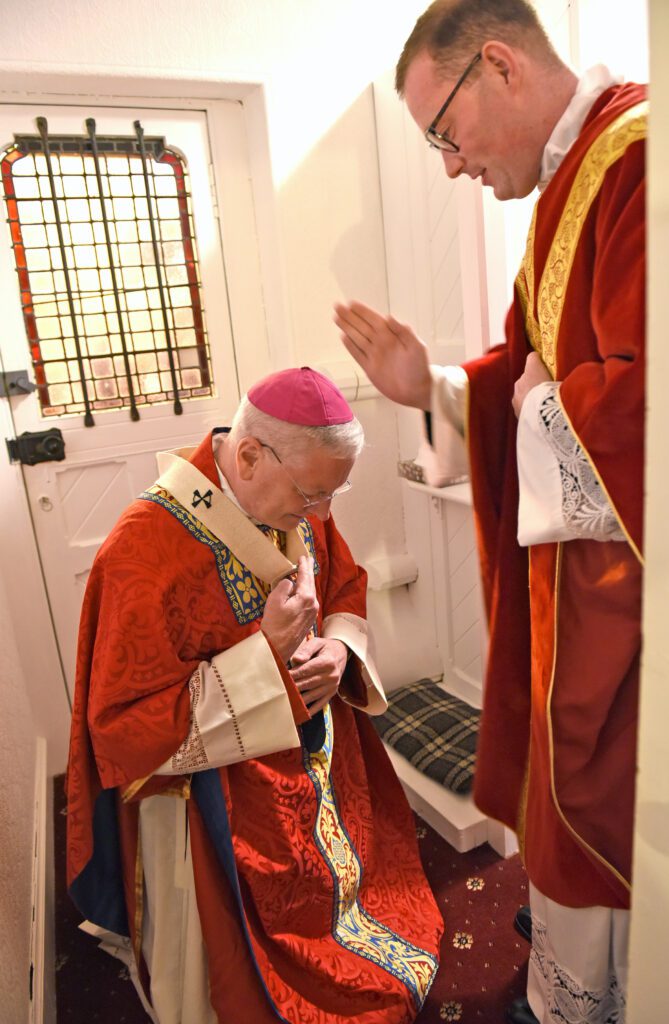HOMILY: Ordinations to the priesthood in Edinburgh
Here is Archbishop Leo Cushley's homily from yesterday's Mass in which Paul Henderson and Peter Shankland were ordained to the sacred priesthood at St Mary's Cathedral in Edinburgh.
Homily
Dear brothers and sisters in Christ, my dear friends,
A renewed word of welcome to all of you who have gathered here for the priestly Ordination of Paul Henderson and Peter Shankland. A special welcome to Peter and Paul’s family and friends.
Today, 29 June, has been for a very long time a day reserved for the ordination of priests, that is, presbyters, the second of three steps in holy orders.

For much, much longer, however, at least 1,400 years, 29 June is the day on which the Church of Rome celebrates, together, its two great apostles, Peter and Paul.
Thirdly, the circumstances that bring our own Peter and Paul to be ordained, today, on the Feast of SS Peter and Paul, seems so unlikely, you couldn’t make it up, but it’s also a very happy, coincidence.
How 29 June came to be associated with Ordination to the priesthood may be because it is a great feast at the end of the academic year; Peter and Paul are apostles; and Popes like St Paul VI and St John Paul II kept a tradition of ordaining priests on this day, especially those who had trained for the priesthood in Rome, and after studies there, these young men were returning home to points all over the world.

They were returning home not only with all their preparation and enthusiasm, but also bringing with them the concrete reality of ordination to the priesthood, and indeed at the hands of the successor of Peter.
The priesthood is one of the most important gifts that the Church can entrust to anyone. Because it is Christ’s own pledge to us and a sure means of sanctifying all of us on our Christian journey through life, it is very precious to us, and it bears saying again today, lest we forget and lest those who take up this office do so too lightly.
Saints Peter and Paul arrived at faith along very different paths, and yet they also had much in common.

Both were Jewish, both apostles, both martyrs, with so much in common, but they also manage to give us two quite distinct examples of fidelity in their discipleship and indeed their priesthood.
Peter openly and willingly expresses his faith in Jesus as the Christ, but he is weak, he fails the Lord; and yet he also comes to an expression of love in the living Lord, particularly in today’s gospel, that is sincere, humble and deeply moving to us.
He is a model of a disciple who has learned of his own limits, has acknowledged them, and who will ultimately grow in stature to become the Church’s principal leader.

In the meantime, Paul is someone whose adherence to the ancient law led him to persecute bitterly the followers of Jesus. Slowly, however, unbeknown even to him, Paul changes in his attitude towards Jesus of Nazareth.
On the road to Damascus, he reaches a crisis, and by the time he gets to Damascus, he shocks everyone by standing up and stating boldly, simply, and with the greatest conviction, “Jesus is the Son of God”.

Peter and Paul show us two journeys in faith.
Both become, over time, faithful disciples. Both are commissioned, and sent out to live and to preach the Gospel to others. Both fulfil their mission by different roads.
But both arrive at the same conclusion, a devotion to the person of Christ that brings them to Rome and to the ultimate witness to him, in the shedding of their blood.
Your paths have brought you to a mature decision to embrace a life of prayer, of celibacy and of obedience to the Church.
Peter and Paul (our own Peter and Paul here today!), you have both been on a journey that has brought you both to the same point, here today.
You have arrived at this moment by very different paths, but you have both come to the same conclusion, the wish to offer yourselves, with your talents, your energy, and all your experience to the Lord, for service in Christ’s priesthood.

Your paths have brought you to a mature decision to embrace a life of prayer, of celibacy and of obedience to the Church.
None of these elements of your life is especially understood or appreciated by the world around us, but you have come to see the goodness and the beauty of what the service of others in the priesthood can mean, and ought to mean, in its lived reality.
The life of a priest is one of sacrifice, but it is a joyful sacrifice when we embrace it willingly.

It is one of the Lord’s most precious gifts that he can bestow through us upon you, and it comes with life-changing consequences.
The priesthood will bring you close to the sacramental mysteries of our faith, and it will bring you close to the joys and concerns, to the troubles and the hearts of many people, some of faith, others not.
You are therefore being placed in a position of the greatest trust, a trust that will demand of you an openness to the Lord’s grace and a singlemindedness of heart, putting your own will and desires to one side, and to acting with the highest level of personal integrity.

Serve, therefore, the people to whom you are sent, first of all, by a life well lived, and a simplicity and clarity of conscience.
Prepare well to preach the gospel, and do so in truth but also with charity, and always with mercy.
Celebrate the Sacraments with dignity and beauty, above all the Eucharist. And as you grow in the priesthood, continue to pray, learn from your brother priests, stay close to your people, and never lose sight of your own discipleship among Christ’s other disciples.
Be worthy of this wonderful calling to serve others in the priesthood and, no matter how long or short, may your life and ministry be blessed abundantly by the Lord you serve. Amen.




Images by Paul McSherry.
